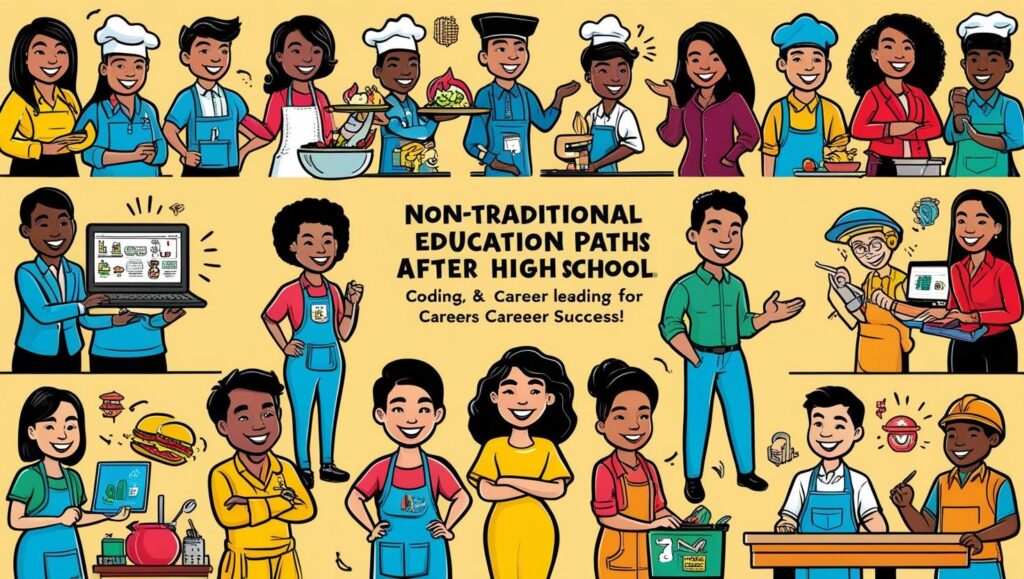The US remains a leading higher education destination for both international and domestic students. As thousands of institutions offer a broad spectrum of undergraduate programs, selecting the right bachelor’s degree and university can be challenging. While the US has unique resources and programs to prepare students for life after college, whether the goal is a more career-oriented degree or a broader liberal arts education, learning how the US academic structure and college application process work is key to being in a position to succeed.
What You Need to Know About Undergraduate Programs in the US

In the US, an undergraduate education is generally a four-year educational program leading to a bachelor’s degree. The students can either get a BA, a BS, or any other degree specific to their discipline. These programs typically incorporate general education requirements and further courses in the minor into the major, enabling students to explore more than one field of study before deciding on one specific academic area.
US universities have also been known to allow a lot of flexibility in terms of course selection, which is not the case in many countries. Such flexibility also enables students to explore their passions in more detail with elective courses and, at times, even change their majors if necessary. This flexibility is one of the key benefits of an American education, especially for students not yet sure what to focus their studies on.
How to Choose the Right University and Course for Undergraduate Programs in the US
Choosing a university is one of the major steps in applying to an undergraduate program. Future students should factor in things like academic reputation, majors available, campus vibe, financial aid opportunities, and location. Read more: The US has many types of institutions, ranging from large public universities to private colleges or even specialized degrees at liberal arts colleges or technology institutes.
Ensure also that a university has the bachelor’s degree courses you are looking for. As an example, some will have a name for engineering or business programs, and others for the arts and humanities. You can find the course outlines and faculty information through your academic advisors and the university website.
Undergraduate Admission Process for Programs in the US
There are several key components to applying for undergraduate programs in the US. Similar to many universities, standardized test scores such as the SAT or ACT, transcripts from high school, letters of recommendation, and personal essays are common. Of course, international students also have to submit their TOEFL or IELTS scores to prove their English language skills.
Writing a personal statement or essay is one of the most important components of the application that informs admissions boards about students’ goals, dreams, passions, and individuality. Even top-tier institutions have a competitive cohort for acceptance, so a great essay can sway admission significantly.
Every institution has different deadlines and requirements, so it is important to start the application process early. A lot of students start preparing in their junior year of high school, which allows sufficient time to organize the paperwork and meet crucial deadlines.
Financial Aid and Scholarships for Undergraduate Programs in the US
![]()
Remember: Paying for your education is an essential step to securing a US bachelor’s degree. Tuition costs can add up, particularly with private universities, but various institutions provide merit- and need-based scholarships. There are also lots of other funding options through external organizations that any student can apply for, including international students.
The Free Application for Federal Student Aid (FAFSA) is a must-have document for everyone planning on winning the financial aid lottery, whether a US citizen or an otherwise eligible non-citizen. International students should research scholarships designed for international students, as some universities keep funds only for global applicants. These options can help ease the financial burden and make studying in the U.S. possible, especially if you explore these options early on.
Campus Life in Undergraduate Programs in the US
US study leads to academic qualification benefits, but also cultural experiences. Universities offer lively campus life as well, with clubs, sports, arts, and community events. This provides a good environment as friendships also develop and you bond over your mutual likings, which is achievable living in student housing or by getting involved in other campus activities.
International students might take up to two years to adapt to the American lifestyle and study habits, however, universities provide support services, orientation packages, tutoring, and counseling. This environment provides for self-development and autonomous traits that ultimately matter both in the classroom and beyond.
Job opportunities following graduation
The greatest advantage of pursuing a bachelor’s degree from a US university is the array of career options that it provides you. Career Centers: Almost all universities have career centers that help with job placement, internships, preparing resumes, and preparing for interviews. There are potential career options for graduates in technology, finance, healthcare, education, etc.
Some newer international students will qualify for optional practical training (OPT) and, after graduation, be allowed to work in their field for up to 12 months (STEM fields get additional time). This hands-on experience is a great way to expand your network and learn about the U.S. job market.
Final Thoughts
Beginning a journey across US undergraduate programs can be an exciting but complex experience. Whether it is choosing the right university, applying, settling into a campus, or preparing for a job, every step is important to have a good educational career. The US has so much to offer students, and with a bit of planning, academic diligence, and a readiness to expand horizons, students will get the most out of their US experience while laying the groundwork in their lives that will serve them for years beyond.




Pingback: Discover the Top US Universities for Undergraduate Programs - Education Hub